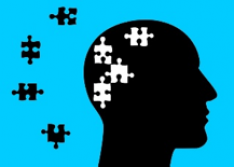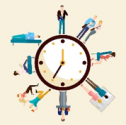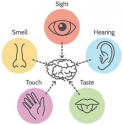Managing Memory Difficulties with a Neurological Condition
The information contained here is not intended to replace medical advice, and if you feel like your difficulties are obstructing your rehabilitation or impacting upon your day-to-day life, you should speak to a medical professional.
Information on this topic
Our memory allows us to take in information, store this information in our brain, and then retrieve it when we need to use it.
However, sometimes our memory does not work how we need it to. Most people with memory problems have these problems for a physical reason: they cannot remember.
The parts of our brain that control these processes may stop working properly:
- Each individual may find that different parts of the process are affected.
- You may be able to remember some types of information, but not others.
- You might only be able to remember information for a certain amount of time.
- You may find old memories easier/ harder to remember than new memories.
We all forget things at times – but those with a memory problem might find they forget things more often, or forget things that others would not.
It is also important to know that sometimes these memory problems may be due to an inability to concentrate and take in information. A lack of sleep/ fatigue can also impact our memory – see our self- help resource on fatigue for tips around these difficulties.
Self Quiz
If you find that you experience some of the following common memory complaints, or something similar, then our self-help top-tips and activity below may help you manage in day-to-day life.
“I went to another room and couldn’t remember why I was there’
‘I easily forget people’s names I should remember’
‘I lost track of the conversation’
‘I pick up a book and I can’t remember the bit I read before’
‘I forget the name of the place I went on holiday and what we did’
‘I completely forgot to go to a meeting / send someone a birthday card'
‘I have trouble keeping track of what I am supposed to do during the day’
‘I sometimes forget to take my medication’
‘I find it hard to remember what I need to buy at the supermarket’
‘I get lost easily, even when I am going somewhere I have been before’
‘I find it really difficult to concentrate at times. I am easily distracted and sometimes forget what I am doing in the middle of it.’
Top Tips
Sometimes memory will improve itself with time, other times it will not, but we have put together a few top tips for managing memory problems:
- Reduce the amount to remember e.g. one thing rather than three things. Try to remember little things often, rather than lots of things at one time.
- Try to group information together so you can remember more information e.g. shopping lists are easier to remember when grouped into categories such as vegetables, dairy, and meat.
- Keep a diary/ journal of events, thoughts, feelings and anything else you want to remember so you can come back and read this to help you remember.
- Use signs, labels, or cue cards to remind you where things are.
- Set a routine e.g. doing your food shop at the same time each week. Having a daily schedule with a specific breakdown of activities can really help.
- Let someone else remember e.g. family member come to medical meetings and take notes.
- Use prompts via. our five senses to help bring memories back e.g.
Photos can help our memory (could use phone to take photos during the day)
Perfume smell can prompt memory of someone special
Taste of food can help you remember when you first ate it
Sand under toes brings back memories of childhood holiday
Music may bring back memory of when you first met someone special
Self Help Activities
Calendar
Try out the weekly or calendar template. There is also a schedule for your routine in one single day if this would be more useful.
Put this in a place where you will see it often e.g. on the fridge or by the telephone.
- You can write down things you want to remember on each day e.g. what you need to do
- Get into a routine of checking your calendar e.g. every morning or mealtime.
- Cross the day’s date off your calendar before you go to bed, so that you know the date the next day.
Journal
- Write a few sentences or stick photos in a daily journal. For example, you could keep a receipt from a meal out, train tickets or a programme from a show as reminders.
- You can look back in it to remind you what you have done or how you felt.




